Search Results
Search
Filter results
Advanced Filters
Your search returned 280 Solutions
-
Post-secondary inclusion: a path to employment
IPSE develops inclusive post-secondary education opportunities for individuals with developmental disabilities. The initiative has a proven track record, resulting in vastly superior rates of employment for adults with developmental disabilities in a broad array of jobs and careers with less dependency on human services.
Alberta Association for Community Living, Post-secondary inclusion: a path to employment, Canada -
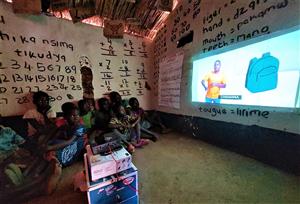
International NGO using digital books with sign language and audio for all children
World Vision Malawi's Timwerenge 365 Digital Books Project: Offers accessible digital books for children's literacy, including 60 with Malawian Sign Language. In 2023, extended to schools for the deaf throughout the country.
Timwerenge 365 (T365) Digital Books Project , Malawi -
Supporting businesses in creating accessible workplaces and infrastructure
Based in Karachi, Pakistan, NOWPDP started a comprehensive project for public space and workplace accessibility and inclusion in 2012. Since then more than 50 locations have been adapted. To date more than 2,000 people with disabilities have benefited, 30 branches of a bank and numerous offices have been modified.
NOWPDP - Network of Organizations Working with People with Disabilities, Pakistan -

Global accessibility and digital inclusion strategy for a multinational IT company
With its Global Accessibility and Digital Inclusion Strategy, the global IT service provider Atos introduced a policy for accessibility and digital inclusion back in 2010, covering more than 70 country offices. Its measures focus not only on internal areas but also on the entire supply chain.
Atos, Global Accessibility & Digital Inclusion Governance, United Kingdom -
The open-source software 'Universal Maths Conversion Library' (UMCL) was developed into a web-based tool to convert all kinds of documents containing mathematical formulae into Braille.
MathInBraille improved the open source software "Universal Maths Conversion Library" and developed a web portal. This means the tool can be used online without users having to install specific software. With the web-based convertion tool the user can convert different document formats into accessible versions.
Hilfsgemeinschaft - Austrian Association supporting the Blind and Visually Impaired, Web-portal to convert math formulae into Braille, Austria -
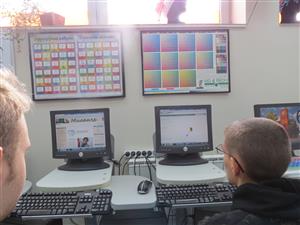
An e-learning platform for audio and video learning materials
The school portal "Milance" has created an e-learning platform, poviding basic information on various topics free of charge. In 2016, these were language skills, mathematics and science in various audio and video formats. In order to reach children outside school, seminars for representatives of disabled people were organised.
School for Elementary and Secondary Education - Milan Petrovic, Serbia -
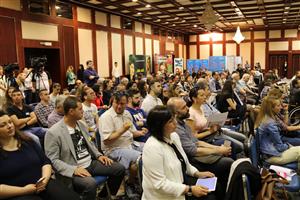
Comprehensive job-creation model from East Europe expanding internationally
The self-funded programme assists people with disabilities to acquire soft skills and professional abilities. Jamba also works with employers and operates a job matching platform. Launched in 2017, by 2020 Jamba has trained more than 590 people, has 58 partner organizations, and has more than 2,000 candidates in its database.
JAMBA - Career for All, JAMBA - Career For All, Bulgaria -
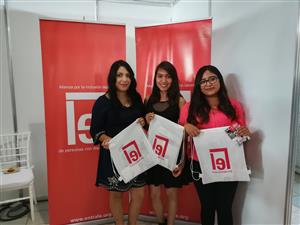
Labour inclusion index and job platform for disability-inclusive companies
Alianza Éntrale works to connect talented people with disabilities and employers by supporting companies in a number of ways, including digital training tools and certification. By mid-2020 the initiative included 847 companies and 35 NGOs with more than 9,821 people with disabilities in employment.
Mexican Business Council, Alianza Éntrale, Mexico -
Standards for physical accessibility
Between 2009 and 2015 seven laws and decrees have been passed in support of persons with disabilities. Law 4.934/13, for example, mandates that all public and private spaces must be accessible to people with disabilities. The private sector is incentivised by fiscal benefits rather than obligations.
Saraki Foundation, Paraguay – Saraki Foundation & USAID – Seven laws improving accessibility standards, Paraguay -
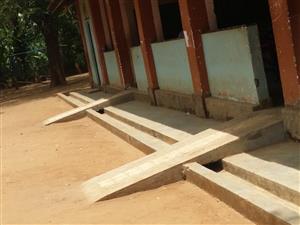
Effectively creating accessible buildings in rural, less developed areas
In 2011 the Uva Provincial Council developed a policy to achieve universal inclusion in this district by 2018. The policy is addressing the gaps in accessibility to the built environment as well as targeting the inclusion of persons with disabilities and older persons in a holistic manner and in a way that is feasible within a rural setting.
Uva Provincial Council, Sri Lanka – Uva Provincial Council, Moneragala – Age Friendly & Disabled Friendly City, Sri Lanka